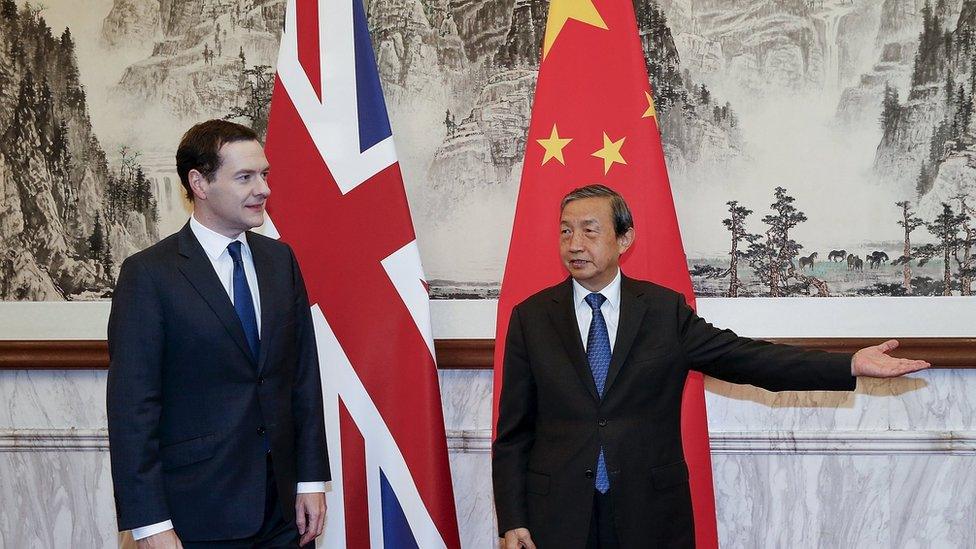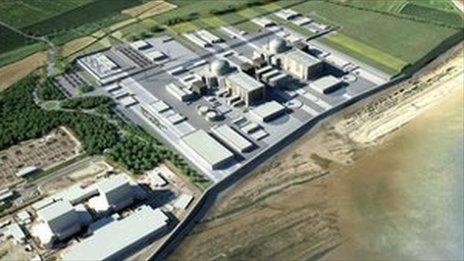Nuclear technology - China's next great export?
- Published

Britain's Chancellor George Osborne announced greater collaboration with China on the construction of nuclear plants at a news conference with Chinese Vice-Premier Ma Kai
For China, the prize on offer in the UK is not the investment in Hinkley Point or Sizewell B but a controlling stake at Bradwell in Essex. This could be the first Chinese-designed nuclear power plant in the West, a massive breakthrough for China in promoting global exports of its nuclear technology.
So far its customers have been confined to countries like Pakistan, Romania and Argentina with the developed world opting for American, Japanese and French technology.
But the Energy Secretary, Amber Rudd, has said that China will be part of building the next generation of UK nuclear power stations and that having Chinese design up and running in the UK would give other countries confidence on safety.
Safety is a key question.
China launched a nationwide safety inspection into all its existing nuclear facilities in the wake of the Tianjin chemical warehouse disaster last month that killed more than 160 people.
Though none of its existing reactors has experienced any serious accidents, its entire nuclear construction programme was suspended in 2011 following Japan's Fukushima disaster. New approvals started again this year.
China is the world's biggest builder of nuclear power plants. It currently operates 24 reactors with a further 25 under construction. Critics say the industry is expanding too fast given its brief history in China and serious shortage of experienced engineers and operators. They also complain that safety regimes have come second to profit and that China offers no protection for whistleblowers.
At home the Chinese government is committed to fast expansion to reduce air pollution and cut dependence on imported oil and gas. But as with other high-value infrastructure like high speed rail, Beijing is also keen to leverage this technology for commercial advantage abroad.
Given the UK's long track record on nuclear power, and internationally recognised safety standards, a contract to build a Chinese-designed plant in Essex would be a huge endorsement for China, and one which will raise eyebrows in other European capitals and in Washington where the Obama administration would certainly not invite Chinese involvement in a strategic project with sensitive security implications.
But the chancellor has said there is to be "deepening collaboration in nuclear sectors in the UK and China" and all eyes will be on London next month for the signing of these important deals during President Xi Jinping's state visit to Britain.
- Published21 September 2015

- Published21 September 2015
- Published21 September 2015
